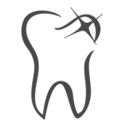
VISITING HOURS:
Week Days - 9 am to 8 pmSundays - Only Emergency CasesThings You Should Know About Oral Cancer
Cancer, in general, and mouth cancer in particular, is a sensitive topic. However, with an estimated increase in the number of people diagnosed this year, educating yourself on prevention methods, early detection, and treatment options for mouth cancer and tongue cancer is critical. While mouth cancer, tongue cancer, and gum cancer are all serious concerns, the good news is that early detection is as simple as scheduling routine dental exams every six months.
A dentist can detect and diagnose precancerous tissue changes and early mouth cancer symptoms while they are still in their early stages. When signs of mouth cancer are detected early, the survival rate is reassuringly high, ranging from 80% to 90%.
Here are some important things you should know about oral cancer:
What is Oral Cancer?
Oral cancer appears as a persistent growth or sore in the mouth. Oral cancers include cancers of the lips, cheeks, tongue, the floor of the mouth, hard and soft palates, sinuses, and pharynx (throat).
Oral cancer is much easier to treat when detected early. However, most people receive a diagnosis when their condition is too advanced to treat effectively. If you visit your dentist or doctor regularly and learn how to spot suspicious changes, you will have a much better chance of receiving an early diagnosis.
Symptoms
Symptoms of oral cancer include:
- A recurring sore on your lip or mouth
- A growth or mass anywhere in your mouth
- Bleeding from your mouth
- Loose teeth
- Pain or difficulty swallowing
- Trouble wearing dentures
- A lump in your neck
- An earache that won’t go away
- Dramatic weight loss
- Numbness in the face, lower lip, neck, or chin
- A white or reddish patch inside your mouth
- A sore throat
- Jaw pain or stiffness
- Tongue pain
Risk Factors
Some risk factors for developing oral cancer are uncontrollable. Oral cancer is more common in men than in women, and it is most commonly diagnosed in adults between the ages of 55 and 64. 2 Other risk factors, on the other hand, are under your control. Some of the behaviors that may put you at risk, for example, are as follows:
- Using tobacco products
- Consuming alcohol excessively (more than four drinks per day)3;
- Combining alcohol and tobacco products (significantly raises the risk);
- Using betel quid (paan)
- Consuming a diet deficient in vegetables and fruits
- Long periods of exposure to the sun
Infection with the sexually transmitted human papillomavirus (HPV) is another risk factor on the rise. HPV has been linked to oropharyngeal cancers in particular. Oropharyngeal cancer affects tissues near the back of the mouth and throat, including the tongue’s back and base, as well as the tonsils. 3 People with HPV-related oropharyngeal cancer are typically 4 to 10 years younger than those with non-HPV-related oral cancers.
How is oral cancer treated?
Treatment for oral cancer varies according to the type, location, and stage of cancer at the time of diagnosis.
Surgery
Early-stage treatment usually entails surgery to remove the tumour and cancerous lymph nodes. Other tissue around the mouth and neck may also be removed.
Radiation treatment
Another option is radiation therapy. For two to eight weeks, a doctor will aim radiation beams at the tumour once or twice a day, five days a week. Advanced stages of cancer are typically treated with a combination of chemotherapy and radiation therapy.
Chemotherapy
Chemotherapy is a type of cancer treatment that employs the use of drugs to kill cancer cells. The medication is administered either orally or via an intravenous (IV) line.
Targeted therapy
Another type of treatment is targeted therapy. It has the potential to be effective in both early and advanced stages of cancer. Targeted therapy drugs bind to specific proteins on cancer cells, preventing them from growing.
Nutrition
Nutrition is also an essential component of your oral cancer treatment. Many treatments make eating and swallowing difficult or painful, and poor appetite and weight loss are common side effects.
Read To Know : Why Good Nutrition is Necessary for Healthy Teeth?
Prevention
There is no effective way to prevent mouth cancer. However, you can lower your risk of developing mouth cancer if you do the following:
Stop smoking or don’t start
Stop using tobacco if you do. Don’t start smoking if you don’t already. Tobacco use, whether smoked or chewed, exposes the cells in your mouth to carcinogenic chemicals.
Read To Know : How Smoking Affects Your Teeth
Reduce alcohol consumption
Excessive alcohol consumption can irritate the cells in your mouth, making them susceptible to mouth cancer. If you must consume alcohol, do so sparingly.
Avoid overexposure to the sun on your lips
Stay in the shade as much as possible to protect the skin on your lips from the sun. As part of your regular sun protection routine, use a sunscreen lip product.
Maintain regular visits to your dentist
Request that your dentist inspect your entire mouth as part of a routine dental exam for abnormal areas that may indicate mouth cancer or precancerous changes.
But many people associate going to the dentist with a negative experience, but your dentist, like your primary care doctor, is there to help you stay healthy. If you are experiencing pain in your mouth, don’t be afraid to consult a dental clinic in Kochi so that your dentist can examine the area and, if necessary, take further action. Never be afraid to ask questions about various treatment methods.
At Dentique, we offer a full range of dental treatments and solutions for any dental issue or problem you may be experiencing. Our internationally trained team of specialised dentists provides speciality-based dental care in accordance with the dental needs of our patients. You can be confident that you will receive the best dental treatment and care at Dentique.
Feel free to contact us for your queries.
OUR
TREATMENTS
TREATMENTS








